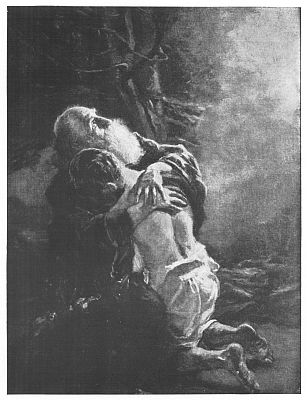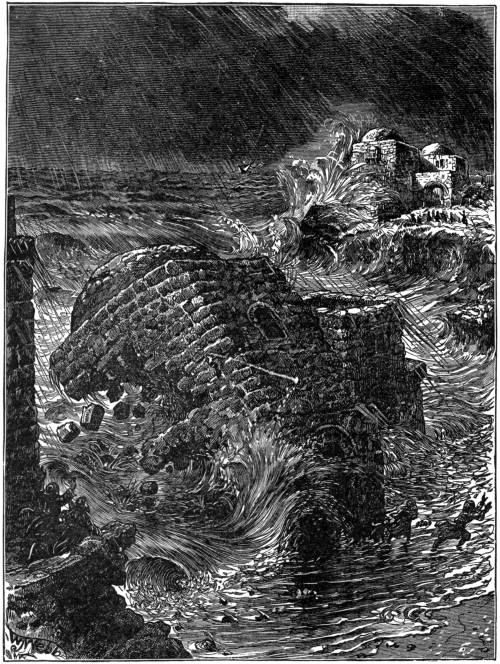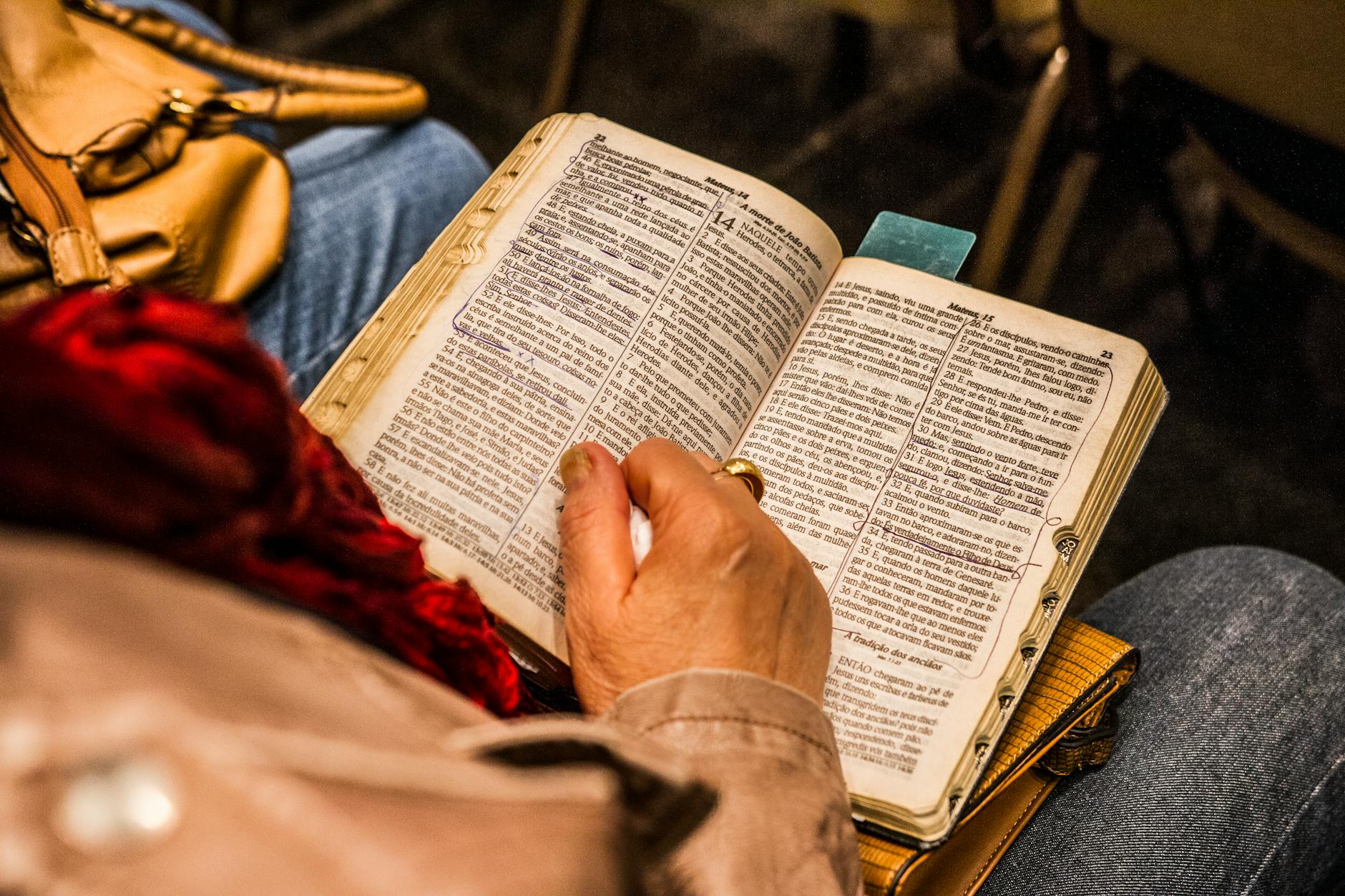JOSEPH SOLD AS A SLAVE BY HIS BROTHERS
When Joseph was seventeen years old, he and his brothers were shepherds, but he made them angry, for he brought a bad report about them to their father. Now Jacob loved his son Joseph, who was born in his old age; and he made him a long coat with sleeves. When his brothers saw that their father loved him more than all his other sons, they hated Joseph and would not speak to him in a friendly way.
Joseph had a dream which he told to his brothers; and they hated him still more. This is what he said to them, “I dreamed that, as we were binding sheaves in the field, my sheaf rose up and remained standing, while your sheaves came around and bowed down to my sheaf.” His brothers said to him, “Will you really be king over us? Will you indeed rule over us?” So they hated him still more because of his dreams and his words.
Then he had another dream and told it to his brothers, saying, “I have had another dream, and it seemed to me that the sun and the moon and eleven stars bowed down to me.” But when he told it to his father and his brothers, his father reproved him and said, “What is this dream that you have dreamed? Shall I and your mother and your brothers indeed come and bow down to the earth before you?” Therefore his brothers were jealous of him; but his father remembered the dream.
When his brothers went to pasture his father’s flocks in Shechem, Jacob said to Joseph, “Go, see whether all goes well with your brothers and with the flock, and bring me back word.” So he sent him out, and a certain man found him, as he was wandering in the field, and the man asked him, “What are you looking for?” He said, “I am looking for my brothers; tell me, I beg of you, where they are pasturing the flock.” The man said, “They have gone[27] away, for I heard them say, ‘Let us go to Dothan.'” So Joseph went after his brothers and found them in Dothan.
When they saw him in the distance, before he came to them, they planned together to kill him. And they said one to another, “See, here comes that great dreamer! Come, let us kill him and throw him into one of the pits, and we will say, ‘A fierce beast has devoured him.’ Then we shall see what will become of his dreams!”
Judah, however, when he heard it, saved Joseph’s life by saying, “Let us not take his life.” Reuben also said to them, “Do not shed blood; throw him into this pit, here in the wilderness; but do not harm him.” Reuben said this to save Joseph from their hands so that he could bring him back to his father. So when Joseph came to his brothers, they took off his long coat with sleeves and threw him into the pit. But the pit was empty, there being no water in it.
Then they sat down to eat and, when they looked up, they saw a band of Ishmaelites coming from Gilead; and their camels were loaded with spices, gum, and ladanum on their way to carry it down to Egypt. And Judah said to his brothers, “What do we gain if we kill our brother and hide his blood? Come, let us sell him to the Ishmaelites, and let us do him no harm, for he is our brother, our own flesh and blood.” So his brothers listened to him; and, drawing up Joseph, they sold him for twenty pieces of silver to the Ishmaelites, who brought him to Egypt.
Then his brothers took Joseph’s long coat, killed a he-goat, dipped the coat in the blood, and brought it to their father, and said, “We found this; see whether it is your son’s coat or not.” He recognized it and said, “It is my son’s coat! A wild beast has devoured him! Joseph surely is torn in pieces.” Then Jacob tore his clothes, put sackcloth about his waist, and mourned for his son many days. All his sons and his daughters tried to comfort him, but he refused to be comforted, saying, “I shall go down to the grave mourning for my son.” Thus Joseph’s father mourned for him.
When Joseph was seventeen years old, he and his brothers were shepherds, but he made them angry, for he brought a bad report about them to their father. Now Jacob loved his son Joseph, who was born in his old age; and he made him a long coat with sleeves. When his brothers saw that their father loved him more than all his other sons, they hated Joseph and would not speak to him in a friendly way.
Joseph had a dream which he told to his brothers; and they hated him still more. This is what he said to them, “I dreamed that, as we were binding sheaves in the field, my sheaf rose up and remained standing, while your sheaves came around and bowed down to my sheaf.” His brothers said to him, “Will you really be king over us? Will you indeed rule over us?” So they hated him still more because of his dreams and his words.
Then he had another dream and told it to his brothers, saying, “I have had another dream, and it seemed to me that the sun and the moon and eleven stars bowed down to me.” But when he told it to his father and his brothers, his father reproved him and said, “What is this dream that you have dreamed? Shall I and your mother and your brothers indeed come and bow down to the earth before you?” Therefore his brothers were jealous of him; but his father remembered the dream.
When his brothers went to pasture his father’s flocks in Shechem, Jacob said to Joseph, “Go, see whether all goes well with your brothers and with the flock, and bring me back word.” So he sent him out, and a certain man found him, as he was wandering in the field, and the man asked him, “What are you looking for?” He said, “I am looking for my brothers; tell me, I beg of you, where they are pasturing the flock.” The man said, “They have gone[27] away, for I heard them say, ‘Let us go to Dothan.'” So Joseph went after his brothers and found them in Dothan.
When they saw him in the distance, before he came to them, they planned together to kill him. And they said one to another, “See, here comes that great dreamer! Come, let us kill him and throw him into one of the pits, and we will say, ‘A fierce beast has devoured him.’ Then we shall see what will become of his dreams!”
Judah, however, when he heard it, saved Joseph’s life by saying, “Let us not take his life.” Reuben also said to them, “Do not shed blood; throw him into this pit, here in the wilderness; but do not harm him.” Reuben said this to save Joseph from their hands so that he could bring him back to his father. So when Joseph came to his brothers, they took off his long coat with sleeves and threw him into the pit. But the pit was empty, there being no water in it.
Then they sat down to eat and, when they looked up, they saw a band of Ishmaelites coming from Gilead; and their camels were loaded with spices, gum, and ladanum on their way to carry it down to Egypt. And Judah said to his brothers, “What do we gain if we kill our brother and hide his blood? Come, let us sell him to the Ishmaelites, and let us do him no harm, for he is our brother, our own flesh and blood.” So his brothers listened to him; and, drawing up Joseph, they sold him for twenty pieces of silver to the Ishmaelites, who brought him to Egypt.
Then his brothers took Joseph’s long coat, killed a he-goat, dipped the coat in the blood, and brought it to their father, and said, “We found this; see whether it is your son’s coat or not.” He recognized it and said, “It is my son’s coat! A wild beast has devoured him! Joseph surely is torn in pieces.” Then Jacob tore his clothes, put sackcloth about his waist, and mourned for his son many days. All his sons and his daughters tried to comfort him, but he refused to be comforted, saying, “I shall go down to the grave mourning for my son.” Thus Joseph’s father mourned for him.



